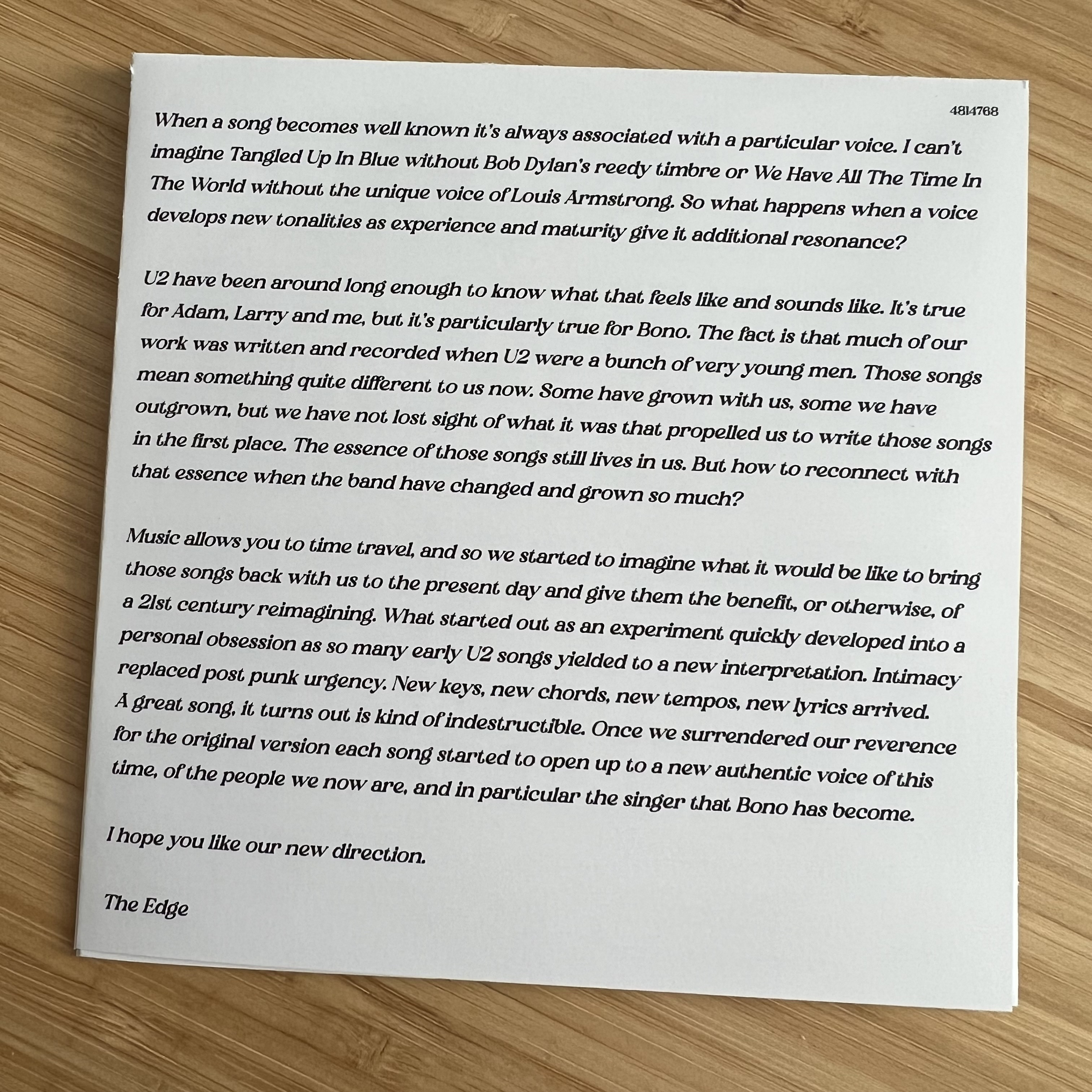Deep into the new Disney+ documentary Bono & The Edge: A Sort of Homecoming, with Dave Letterman Bono says those words in the title in that impossibly sincere voice of his. “Songs are what we carry, even when we have nothing else,” he croaks.
I think it’s in that moment that the entire Songs Of Surrender project started to make sense for me. U2 are on their way out, and they finally realized it and are coming to grips with that fact. The AllMusic review of the album seems to come to the same conclusion:
Six years after Songs of Experience—and nearly a decade after Songs of Innocence—U2 delivered Songs of Surrender, an album whose title suggests it’s either part of a trilogy or the album where the band decided to finally succumb to the forces attempting to pull it down to the ground. Given that a collection of remakes inherently feels like a retreat, the latter interpretation seems more likely.
Even as an unapologetic U2 fan my first listen of the album was a disappointment. I didn’t get what they were trying to do. An album of “remakes” instinctively feels like a band that has run out of ideas and wants to milk whatever popularity they have left. But after reading The Edge’s liner notes in the CD I started to get a slightly better understanding of what they were getting at:

It’s not a stretch to read that, in a deeply cynical way, as a clever way to rebrand the boredom of a bunch of old rockers as something “new” and “innovative.” But I don’t know, after watching that documentary with Letterman I just can’t get myself to take that view. Yes, this answer to the question Why is U2 so popular? still feels true:
Even the political statements go down smooth: “Democracy!” “Fight AIDS!” How could you possibly disagree? You’re not only dancing and reminiscing—you’re spreading freedom and reasonably-priced medicines to distant lands!
And yet. Watching Bono and The Edge walk through Dublin and talk about their past with Letterman, and hearing their old voices—still strong and proud—sing along with their fans in a hometown pub, I simply have to put the critic away on this one.
I’m listening to the album again as I write this, and now that I’ve managed to open my ears fully to what I’m hearing, I think I understand. I can hear the gratitude, the distance, the time, the finality, and yes, the surrender. It’s the sound of a band that has been together for close to 50 years starting to wind things down the only way they know how: they sing the songs they carry, even when they don’t have a whole lot left.